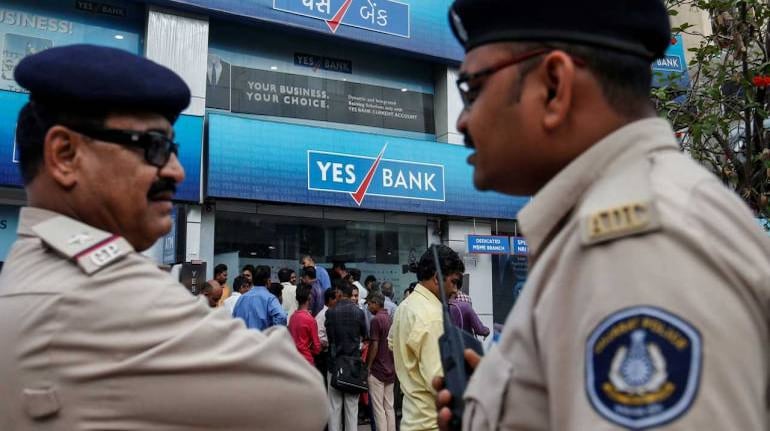Former CEO Ravneet Gill puts the blame on Rana Kapoor for Yes Bank collapse
Gill, who joined as MD and CEO of Yes Bank on March 1, 2019, stated that he was brought to the bank for reasons such as ‘poor credit culture, poor compliance culture, centralisation of power and lack of institutionalisation’.
Yes Bank’s former managing director and chief executive officer Ravneet Gill, in his statement to the Enforcement Directorate (ED), has accused his predecessor and the bank's co-founder Rana Kapoor of flouting rules to extend loans to realty companies owned by Dewan Housing Finance Limited (DHFL). The wrongdoings led to a steep rise in bad loans and the eventual
collapse of the bank. Gill gave the statement on March 11, which has been included by the agency in the
charge sheet filed on March 6 against the bank’s co-founder Rana Kapoor who is facing money-laundering charges. Gill also mentioned in his statement why a moratorium was imposed on Yes Bank by the Reserve Bank of India (RBI). Suspicious transactions in 2018 between DHFL and Yes Bank are under the ED's scanner. The investigation agency found that the bank had subscribed to debentures worth Rs 3,700 crore during April -June of 2018. In the same period, DHFL promoter Kapil Wadhawan paid a kickback of Rs 600 crore to Rana Kapoor and his family members in the garb of a builder loan of Rs 600 crore given by DHFL. The housing finance company is yet to repay the amount of Rs 3, 700 crore invested by Yes Bank in its debentures. The ED has filed the charge sheet against Rana Kapoor, his wife and daughters before a special PMLA court in Mumbai. Rana Kapoor, who was arrested on March 8 by the ED, is in judicial custody. Yes Bank had sanctioned a loan of Rs 750 crore to Belief Realtor Pvt. Ltd -- a company of the DHFL Group controlled by Dheeraj Wadhawan and Kapil Wadhawan. It was sanctioned on June 18, 2018 by the Management Credit Committee headed by Rana Kapoor. No external rating was called on the borrower despite the internal rating lower. Immediately after disbursement of the loan, it was downgraded to further lower to the lowest one, standard process stipulated by the bank for valuation was waived and no end-use certificate was called for from the borrower. All waivers were done by the MCC. Moreover, no end-use monitoring was done by the bank as required by the RBI guidelines. Gill further stated that the loan offered to Belief Realtors had certain inherent risks. The project was at a nascent stage and required approvals such as revision of letter of intent with higher FSI under new DCR, change in developer and consent from slum dwellers for rehabilitation. The project involved sale of premium residential apartments with ticket size of Rs 20 crore and above whereas demand for premium apartments was slowing across the MMR region. Gill, who joined as MD and CEO of Yes Bank on March 1, 2019, stated that he was brought to the bank for reasons such as ‘poor credit culture, poor compliance culture, centralisation of power and lack of institutionalisation’. The former CEO further stated that on September 30 and October 1, due to sale of 10 crore shares belonging to Rana Kapoor by Nippon Asset Management against loans taken by his companies from Nippon, there was approximately 37 percent fall in the share price which created a lot of concern among depositors. The matter was compounded by the fact that the PMC Bank failure had just occurred and net banking was down for several banks including Yes Bank on account of heavy traffic because of the Flipkart and Amazon e-commerce sales. The result of this was that within a span of a couple of weeks almost 25 percent of the bank's liabilities got eroded through withdrawals, Gill noted in his statement. According to him, it had soon become a challenge to attract fresh large-ticket deposits in the bank, and on the other hand, there were
successive rating downgrades that the bank suffered thanks to poor asset quality. As a result, the bank was not able to comply with certain regulatory parameters relating to liquidity, he said. Gill mentioned in his statement that since "the bank had to set aside capital for growing provisioning, the CET1 (Core Equity Tier 1) of the bank started to shrink and stood at 8.7 percent as of the quarter ended 30th Sep 2019”, which was substantially low compared to Yes Bank’s peers. One of the big challenges for the bank regarding capital raising was that investors did not believe that the pricing as per SEBI norms was reflective of the intrinsic value of the share and therefore wanted pricing dispensation. But SEBI declined. Even SBI was of the view that if it invested in the bank it would be at a significant discount to the market. In order to ensure that there was no large deposit outflow, the RBI had no other means to ensure the same other than to impose the moratorium. The imposition of section 45 also ensured that the pricing of the capital raise was free of any restriction and the regulator could manage the operations of the bank as they deemed fit, Gill mentioned in the statement.
Story continues below Advertisement
Story continues below Advertisement
Discover the latest Business News, Sensex, and Nifty updates. Obtain Personal Finance insights, tax queries, and expert opinions on Moneycontrol or download the Moneycontrol App to stay updated!



